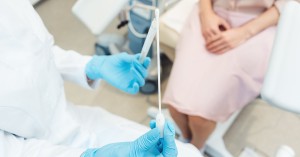
While it’s not a pretty or fun topic to talk about, sexually transmitted infections (STDs) are sometimes a part of life for sexually active people. If left untreated, STDs, which are also referred to as sexually transmitted infections (STIs), can have serious and potentially permanent consequences. They can cause infertility, organ damage, and even cancer. And STDs rates have started to surge in recent years. That’s why getting screened is so important.
There is no hard and fast rule for how often the general population should get tested. When you need to get tested depends on your lifestyle and specific life events. For STD Awareness Month, we’re going to give you a quick rundown of when you might need STD testing.
You Meet Criteria to Be Screened Annually
Some tests should be given to everyone. For instance, the CDC recommends that you get screened at least once for HIV between the ages of 13-64. However, some people should get STD screenings regularly based on age and lifestyle. Sexually active women younger than 25 should get tested for gonorrhea and chlamydia yearly. Women over 25 should be tested annually if they have multiple partners.
Gay or bisexual men who are sexually active are also recommended to get frequent HIV testing (every 3 to 6 months), especially if they have new or multiple partners. Those men should get tested for chlamydia, gonorrhea, and syphilis annually. Another group that should get screened regularly is anyone who shares injection drug paraphernalia. Those individuals should be tested for HIV at least once a year.
You Have Symptoms
Each different STD has different symptoms. However, some signs you may have an STD include:
- Sores or bumps on or around the genitals, thighs, or buttocks
- Burning with urination
- Frequent urination
- Discharge from the vagina or penis
- Itching, irritation, or pain of the genitals or anus
- Swelling in the genitals
- Fever, body aches, swollen glands, fatigue, or other flu-like symptoms
Each of these symptoms could be a sign of something else like a yeast infection, UTI, or other infections. That’s why it’s important to get STD testing if you have these symptoms. Your doctor or healthcare provider can help you determine what you should be tested for based on the type of sex you had and what kind of protection was used.
Your Partner Has Symptoms or Has Been Diagnosed
If a sexual partner has symptoms of an STD, then you should both be tested. It may seem obvious, but definitely get tested if they have been diagnosed with a sexually transmitted infection.
You’ve Had Unprotected Sex Recently
If you’ve recently had unprotected sex with someone new, then you probably need to get tested. Talk to your doctor about what tests you need to get. You may need what’s called an STD panel, which includes testing for chlamydia, gonorrhea, syphilis, herpes 1 & 2, and hepatitis B & C.
You Have Multiple Partners
Not everyone who is sexually active is in a monogamous relationship. And that’s fine as long as you are safe and responsible. Of course, you should use protection, but you should also get tested regularly if you are having sex with multiple partners. It is recommended that women with new or multiple sex partners get tested for gonorrhea and chlamydia each year.
You Are Entering a New Relationship
If you are entering into a new relationship, it’s good to get tested. If you are starting a relationship with a new partner, you may need to get tested even if you will be using protection. It might seem awkward, but you should ask your new partner to get tested as well. If you are in a monogamous relationship and are considering having sex without condoms, you and your partner should both get tested for STDs. You should also have a serious conversation about other birth control unless you are ready to have children.
You’re Pregnant
According to the Centers for Disease Control and Prevention (CDC), all pregnant women should be tested for HIV, syphilis, and hepatitis B in early pregnancy. That is because these diseases can cause harm to both mother and the unborn child. Testing may need to be done more than once depending on individual circumstances.
—
At Green Valley OB/GYN, we have been providing quality obstetric and gynecological care to the women of the NC Triad for over 70 years. We offer a comprehensive list of services and procedures for women in all stages of life. If you have concerns about your reproductive health or questions about STD testing, call us at (336) 378-1110 to schedule an appointment.